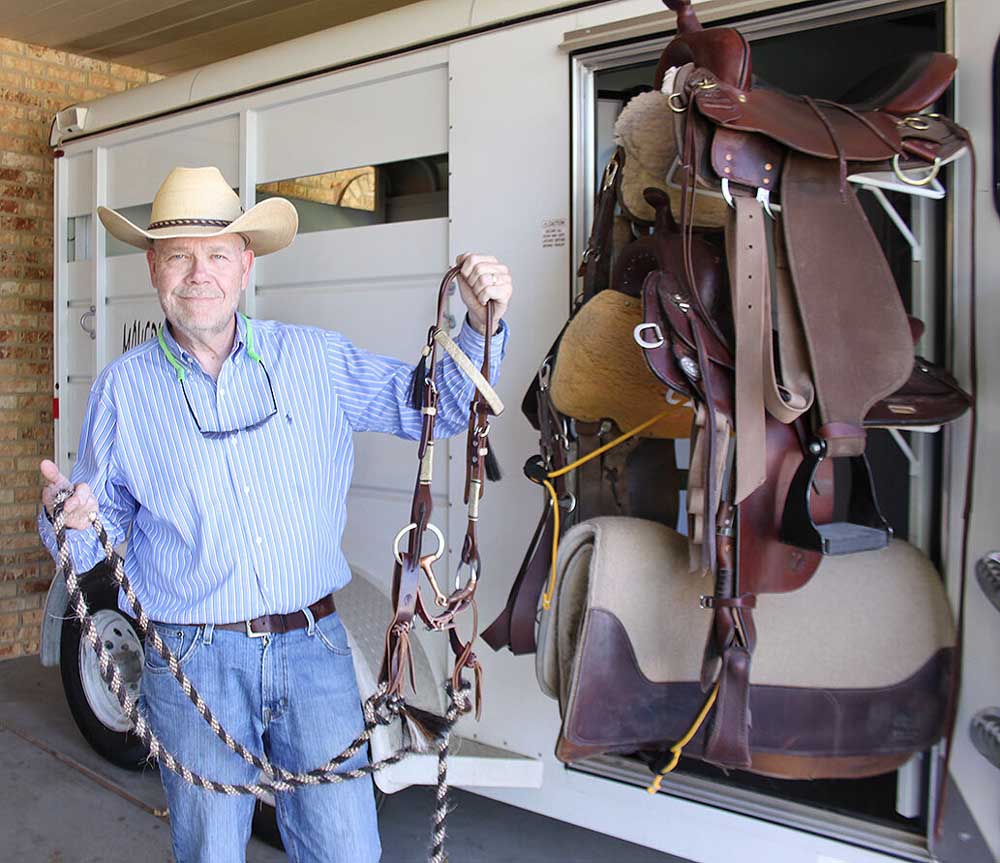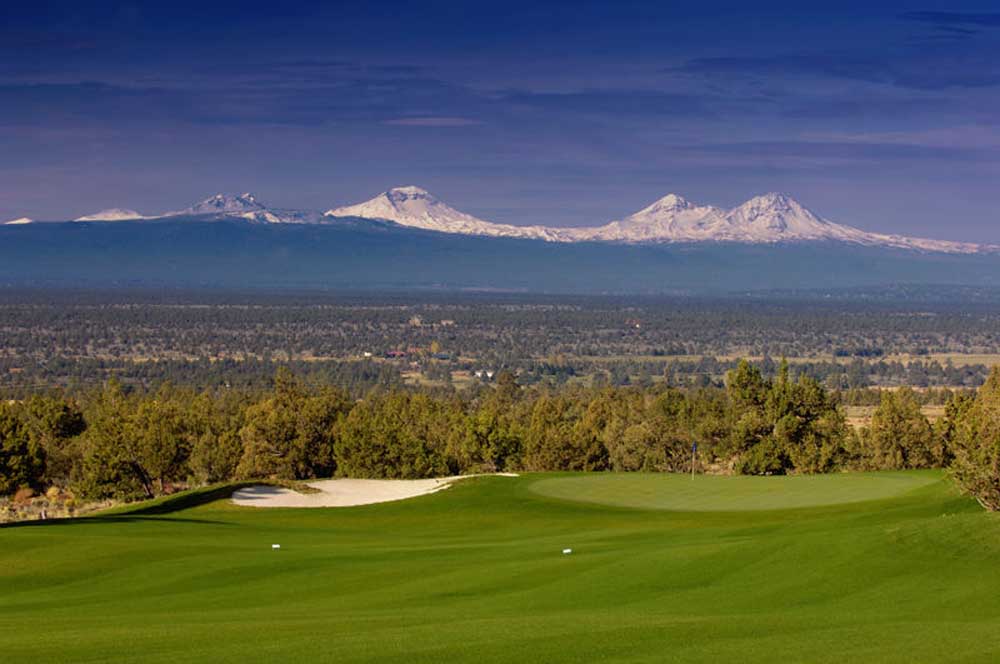Back in the saddle: Guest ranch operations resume after virus shutdowns
Published 5:00 am Wednesday, September 2, 2020

- Larry C. Johnson with a mecate-style rein near his Caldwell, Idaho, home.
By BRAD CARLSON • Capital Press
Larry C. Johnson discovered horseback riding a decade ago and already has many visits to a dude ranch in the mountains of southwest Montana under his saddle.
Trending
And he wants to go again.
“If we go, it will be in September,” said Johnson, 68, a Caldwell, Idaho, fundraising consultant for nonprofits.
“I want to go back in the fall,” he said. “I think it would be beautiful with the leaves.”
Dude ranches, also known as guest ranches, and other businesses that offer guided horseback rides and other services lost reservations and revenue amid this year’s coronavirus concerns and related travel restrictions. Some never opened for the season, but others are seeing their business bouncing back as restrictions are relaxed.
Bryce Street, executive director of the Dude Ranchers’ Association in Cody, Wyoming, said COVID-19 “has taken a huge toll on the travel industry as a whole, which in turn strongly affected dude ranches.”
Many member ranches that were open at the start of the pandemic had to close for several weeks and “had devastating losses in bookings,” she said. “For the summer season, many people postponed their vacations at dude ranches until 2021, but everyone incurred cancellations as well.”
Trending
Street said the prime seasons are summer in the north, and the fall, winter and spring in southern locales like Arizona. Most dude ranch vacations are scheduled 6-9 months in advance. More last-minute bookings have been received in the last couple of years among some millennials, but late bookings have been common this year as COVID-19 left people unsure about when and where they could travel.
“Many folks are tired of staying in their houses,” Street said. “They are ready for adventures.”
She said all of the association’s 97 members technically are working ranches, and “I would say about 20% are what we would classify as working cattle ranches.” She would not offer an estimate of combined annual revenue among members, as the association does not ask them.
Wyoming Office of Tourism spokeswoman Piper Singer said visitors who stayed overnight in the state’s lodging facilities in 2019 spent $2.2 billion. About 3% of those visitors stayed at dude ranches.
Lost spring
Mathew and Rebekah Cain own Mystic Saddle Ranch near Stanley, Idaho. In March and April, they also run a trail-riding operation near Cave Creek, Arizona, about a half-hour’s drive north of Phoenix.
“We lost 95% of that spring revenue” typically generated in Arizona, Rebekah Cain said.
For the Idaho operation, she worked with a state Outfitters and Guides Association subcommittee, state and local governments and health professionals on plans to open after COVID-19 restrictions were eased.
Mystic outings range from short trail rides arranged on short notice to backcountry trips and hunts scheduled up to a year in advance.
“In mid-May the phone started ringing, around the time the nation started opening up,” Cain said.
Taking the Arizona and Idaho operations into account, “we initially saw a complete shutdown on bookings in March, but since the country has started opening back up, we are now booked to our average capacity with more last-minute bookings than usual,” Cain said. “But that was to be expected, with everyone’s plans being put on hold for a few months.”
The Arizona operation’s revenue can’t be made up, though.
“Luckily, we’re financially stable enough to take the hit,” Cain said. “It sets us back a couple of years on plans. In outfitting, which is deposit- and cash-flow-dependent, and can come with high overhead, “you have a certain window to make revenue. This is not like a production business.”
She’s optimistic.
“Outdoor recreation has become a viable option for many families and guests that may have otherwise traveled out of the country or to more metropolitan areas for their vacation,” Cain said. “We are thankful to be able to provide an outdoor activity that people can feel comfortable doing in these uncertain times. As long as people are able to travel, I think our services will be in high demand.”
Street, the DRA executive, shares her sentiments.
“We foresee the demand for dude ranch vacations is going to be very strong once the world establishes its new normal and people start to travel frequently again,” Street said. Ranches “are still seeing many bookings coming in for 2020 seasons, and 2021 seasons are filling up fast.”
Difficult decision
Steve and Karen Simmons own Aspen Ridge Resort on their nearly 16,000-acre Fishhole Creek Ranch southeast of Bly. Guests participate in ranch operations. The hospitality offerings include a restaurant and bar, and lodging for up to 35 in cabins and the lodge. They acquired the Klamath County ranch in 1975, started building the resort in 1989, and three years later began offering guided horseback experiences.
The public-facing businesses were closed by statewide coronavirus mandate in the spring. They remained closed after the mandate was lifted, for reasons including the reduced restaurant capacity forced by personal-distancing requirements, and a desire to limit coronavirus risk at a business that draws clients from around the world.
“It was hard, and we have a loyal customer base” including local visitors, Karen Simmons said. “We are missing them and they are missing us.”
Some guests have been coming for 20 to 30 years, Steve Simmons said. Though the working ranch — which fields about 1,000 cattle including cows and yearlings — generates much more revenue than the hospitality portion, “the resort has been positive cash flow. It helped us in the late ’80s and early ’90s when the cattle business was not real good.”
He said closing the hospitality portion for the year made more sense than potentially opening and closing it in fits and starts.
Safety protocols
Guest ranches that are open this year follow COVID-19 safety protocols.
“Ranches are taking extra precautions for cleaning and sanitation, and following county, state and federal guidelines,” said Street of the dude ranch association. Open spaces, outdoor-dining options and other features “make dude ranches the perfect destination for social distancing.”
Jami Bahadar is a horsemanship teacher who owns Gem State Riders in Meridian, Idaho. She also offers guided trail rides. She said recent trends include more students getting instruction ahead of planned trips, some canceling lessons after losing income or jobs, and “more of the people who own horses and board them riding their personal horses now.”
Meridian high school teacher Taryn Doud, who usually works in the summer at a northern Colorado dude ranch but stayed home this year, said pre-trip instruction helps.
“It’s not just nose-to-tail trail rides,” she said. “You get the chance to do some independent riding, and really enjoy an enriched relationship with a horse and an understanding of horsemanship.”
Larry and Connie Johnson are usually assigned horses by the Montana ranch they started visiting 10 years ago, but may take their own this year.
“It was when we got our own that I got better,” Larry Johnson said.
People go to dude ranches for different reasons, he said, including being outdoors and connecting with animals, wranglers and fellow guests.
“It’s a great place for families to reconnect, get away, slow down and enjoy what’s out there,” Johnson said.








